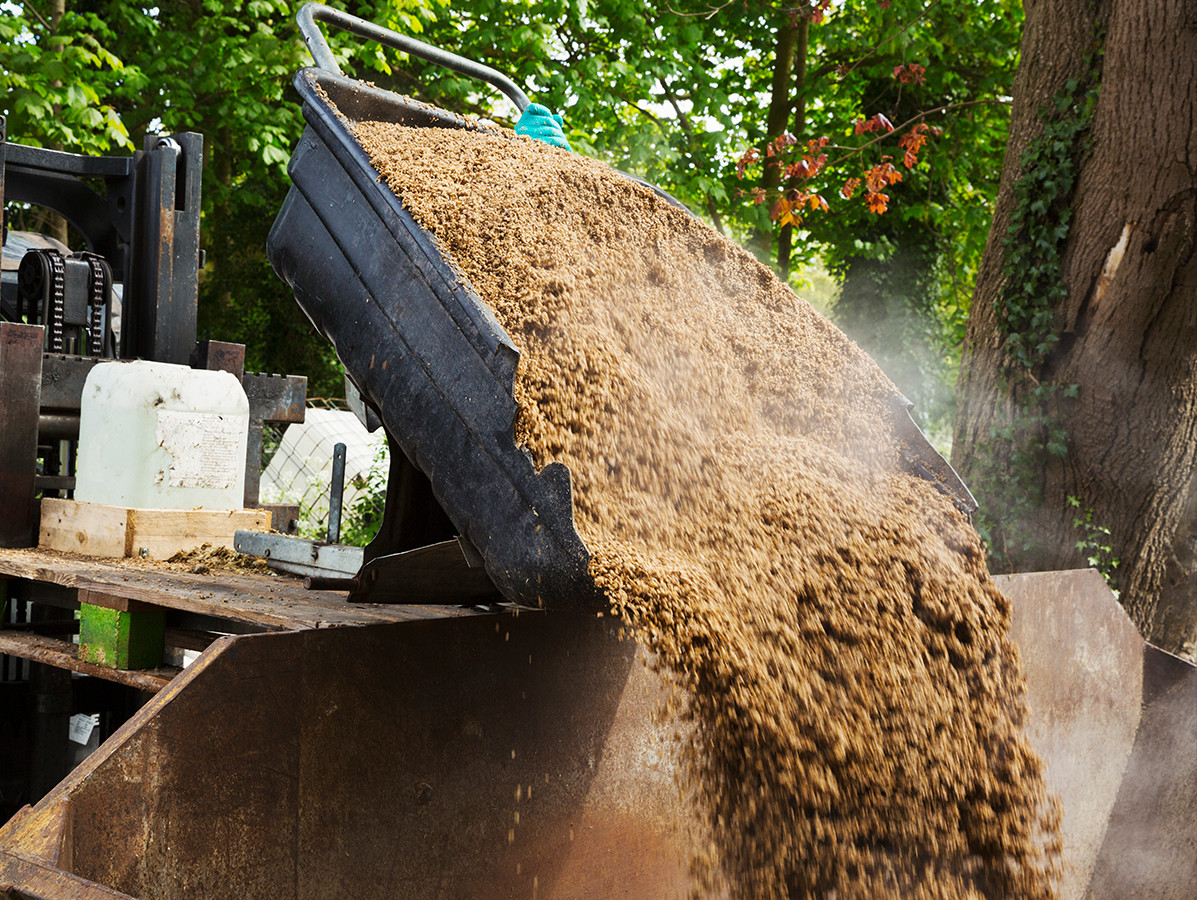
The Dutch beer industry produces enormous quantities (0.5 million tonnes) of beer every year, the residual product of malt after brewing. The bostel contains 30% protein. This residual product is now mainly processed into low-grade cattle feed. Thanks to a new process from Wageningen Food and Biobased Research, the protein fraction can be used as food, resulting in seven times more proteins.
The new process was developed in a research project by beer brewer Heineken, cattle feed manufacturer Duynie and WUR. The aim is to improve the value of the side streams of beer production in a sustainable way.
The biggest task was to isolate the proteins from the beer brew, according to WUR researchers Carl Safi and Wim Mulder. A small part of the protein is soluble in water and therefore easy to isolate, but most of it is riveted to non-soluble fibre fractions such as cellulose, lignin and hemicellulose. Therefore, the proteins must be separated from the fibres. They have now developed a method of cutting the insoluble proteins into pieces so that 90% of them become available.
However, that protein extract also contains other nutritional components such as sugars and minerals. That is why the proteins must be purified. To this end, Safi and Mulder have developed an innovative filtration process that results in a protein purity of 90%. The disadvantage of this process is that the yield falls to 25%. They are now looking for improvements in the purification process, so that the yield increases to around 80%.
While Food and Biobased Research refines the process on a laboratory scale and carries out tests in Wageningen, Duynie scales up the process to an industrial scale, converting thousands of kilos of beer brew per hour into food proteins. Duynie wants to make a high-protein drink with it, but 'you can also use the proteins for the production of meat substitutes or vegan cheese', says Safi.
The research will take three years and cost one million euros. It is funded by the top sector Agrifood and the participating companies.
Source: Wageningen Food and Biobased Research